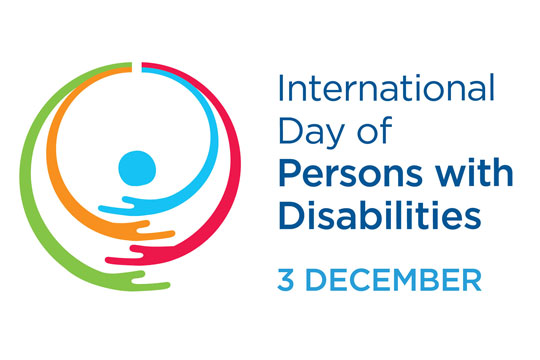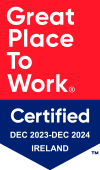This week’s focus is International Day of Persons with Disabilities, celebrated around the world on 3rd December, 2022.
Just some of the ways recommended to observe this significant day include making a public statement of support, so that’s what we’re doing today.
“Transformative solutions for inclusive development: the role of innovation in fuelling an accessible and equitable world“.
Equality and Inclusivity
International Day of Persons with Disabilities was launched by the UN in 1992 with a view to highlighting and generating support for disability inclusion. A fundamental tenet of human rights, it underscores a global commitment to break down social, cultural and historic barriers to those who so often find themselves marginalised by many elements of society.
Perception is everything, and too often we judge the book by the cover.
International Day of Persons with Disabilities aims to remove the lens of bias from our world view. It seeks to open our eyes to equality and inclusivity, to educate us to be non-judgmental when it comes to those who might not look, move, talk or think the same way as us.
Too often and through no fault of their own, persons with disabilities are left in the margins. Despite constant speeches by world leaders about upholding the rights of those with disabilities, these rights often get strangled by bureaucratic red tape or lost through the many deep cracks in our social infrastructure.
Although as a society we have come a long way, and our attitudes towards those with disabilities has changed, much for the better, it is however still the case that many businesses have yet to adopt a culture, policies and systems that underpin equality and inclusion for all.
The cornerstone of co-operation must be the active participation of persons with disabilities in their full diversity, and their full inclusion in all decision-making processes.
António Guterres
A World Free of Barriers and Risks
One billion people worldwide are living with some form of mental or physical disability. These disabilities aren’t always visible, which is why it is so important to ensure we bring these people into the conversation at every opportunity for change or transformation so we can build a world free of barriers and risks. A world in which everyone has the same rights, same access, same opportunities. A world where the doors are open to all.
Many businesses around Ireland now have disabled-friendly policies such as Quiet Zones or Noise-free, low lit environments: Irish Rail and Super Valu, Clonakility are just two examples of Irish businesses that have made simple yet effective changes to simplify processes and ensure those customers with sensory issues feel safe and unimpeded when using their services. [ Super Valu – dedicated Quiet Zone Hours for Autistic Friendly Shopping; Irish Rail – Quiet Carriages, JAM Cards, “Please Offer Me a Seat” badges]
These changes allow those with aural, verbal, visual and/or invisible disabilities to communicate, travel or shop safely and with ease. In the case of the ‘seat badges’ developed in conjunction with the NTA and Invisible Disability Ireland, these are being rolled out across all Irish public transport systems. Isn’t it great to see a project which from the get go ensured people living with these disabilities had a voice at the planning table.
How can Irish Businesses be more inclusive?
There are many ways in which Irish businesses can work to make their premises, culture, processes and products disabled-person friendly.
Structurally, offices, shops and public transport vehicles should aim for: wider doorways and where possible automatic doors; ramps or walkways alongside steps; wheelchair and disabled friendly toilets; buttons, buzzers bells positioned at a level which wheelchair users can access; lighting which can be adjusted to low levels if required; dedicated ergonomically designed seating; voice or sound alert systems such as the bus stop announcement system rolled out by Dublin Bus.
If you’re a small SME and can’t afford large-scale structural changes at a time of mounting pressure from rising costs, simple things like making sure there are no loose cables or random boxes cluttering floorspace or having a small portable ramp on standby could make the world of difference to a person with visual impairment or someone trying to navigate a mobility scooter or wheelchair.
Likewise, turning the volume down if there’s background music or a radio playing in your establishment would be welcomed by those with sensory issues, while dedicating specific shopping hours for elderly, infirm or disabled, similar to that rolled out by many supermarkets during the Covid lockdowns, would ensure a quiet and safe space for those who need it.
Employers need to open the door to inclusivity and diversity in the workplace. ‘Disablism’ has no place in HR policies. All applicants for a position should be given equal and fair consideration. International Day of Persons with Disabilities aims to promote diversity and disability inclusivity.
While we understand that there are certain positions which a person with disability could not fill, there are too many disabled persons automatically excluded from roles for which they are perfectly skilled.
Ultimately though, the most important change we can all make is to our culture. It costs nothing but means everything. We need to step up to ensure all persons with disabilities can step in. No-one should be or feel excluded from a place of business, entertainment, leisure, nature, sport or worship because of a disability, visible or invisible. The world is everyone’s, yet not everyone can enjoy all it has to offer. Human Rights* for some, but not for all.
Transformative Solutions
The theme of this year’s International Days of Persons with Disabilities is “transformative solutions”, but the biggest transformation we can effect is within ourselves and how we, as a society, perceive those with disabilities.
As we mentioned above, one of the ways suggested by the UN to observe this day is to publicly show support. Business leaders can also effect change by reviewing their HR or Inclusivity policies and business practices, improving accessibility and/or simply by ensuring those employees (and future employees) with disabilities can participate fully in all aspects of the business.
ISO 450001 OHSAS
Certifying to ISO 45001 and implementing an ergonimics-driven Occupational Health and Safety Management System is a public declaration of support for Persons with Disabilities. It shows commitment to employee welfare, sustainability and a culture of diversity and inclusivity. It is also the epitome of transformative solutions for which the UN is advocating.
For more information on how ISO 45001 can help enhance and underpin your OH&S processes and policies view our dedicated Standard Page.
*International Human Rights Day is marked annually on 10th December.
*Source UN



